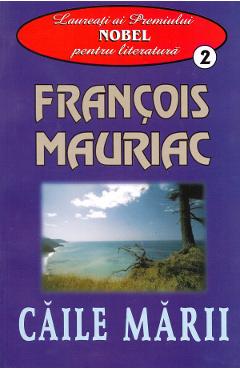Saint Margaret of Cortona - Francois Mauriac

Detalii Saint Margaret of Cortona -
libris.ro
106.02 Lei
117.8 Lei
Philosophy
Francois Mauriac
Saint Margaret of Cortona - - Disponibil la libris.ro
Pe YEO găsești Saint Margaret of Cortona - de la Francois Mauriac, în categoria Philosophy.
Indiferent de nevoile tale, Saint Margaret of Cortona - Francois Mauriac din categoria Philosophy îți poate aduce un echilibru perfect între calitate și preț, cu avantaje practice și moderne.
Preț: 106.02 Lei
Caracteristicile produsului Saint Margaret of Cortona -
- Brand: Francois Mauriac
- Categoria: Philosophy
- Magazin: libris.ro
- Ultima actualizare: 05-06-2025 16:21:01
Comandă Saint Margaret of Cortona - Online, Simplu și Rapid
Prin intermediul platformei YEO, poți comanda Saint Margaret of Cortona - de la libris.ro rapid și în siguranță. Bucură-te de o experiență de cumpărături online optimizată și descoperă cele mai bune oferte actualizate constant.
Descriere magazin:
Margaret of Cortona was an Italian penitent of the Third Order of St. Francis. She was born in Laviano, near Perugia, and died in Cortona. She was canonized in 1728. She is the patron saint of the falsely accused; hoboes; homeless; insane; orphaned; mentally ill; midwives; penitents; single mothers; reformed prostitutes; third children; tramps. Saint Margaret of Cortona aroused Mauriac\'s interest because very little is known about her in France and she succumbed to human love and even had a child. It distracted him in a time where the Germans were all over France and he followed her wherever she led him. This is the story of one such encounter. Mauriac, François 1885-1970, French writer. Mauriac achieved success in 1922 and 1923 with Le Baiser au lépreux and Genitrix (tr. of both in The Family, 1930). Generally set in or near his native Bordeaux, his novels are imbued with his profound, though nonconformist, Roman Catholicism. His characters exist in a tortured universe; nature is evil and man eternally prone to sin. His major novels are The Desert of Love (1925, tr. 1929), Thérèse (1927, tr. 1928), and Vipers\' Tangle (1932, tr. 1933). Other works include The Frontenacs (1933, tr. 1961) and Woman of the Pharisees (1941, tr. 1946); a life of Racine (1928) and of Jesus (1936, tr. 1937); and plays, notably Asmodée (1938, tr. 1939). Also a distinguished essayist, Mauriac became a columnist for Figaro after World War II. Collections of his articles and essays include Journal, 1932-39 (1947, partial tr. Second Thoughts, 1961), Proust\'s Way (1949, tr. 1950), and Cain, Where Is Your Brother? (tr. 1962). Mauriac received the 1952 Nobel Prize in Literature.

Produse asemănătoare

Scotland’s Medieval Queens. From Saint Margaret to Margaret of Denmark, Hardback/Sharon Bennett Connolly
![]() elefant.ro
elefant.ro
Actualizat in 28/10/2025
216.99 Lei


